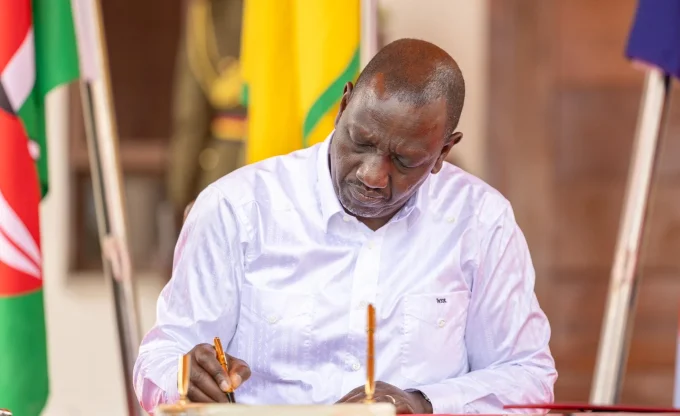The Kenya Tea Sector Lobby has applauded the publishing of The Crops (Tea Industry) Regulations 2020 meant to protect tea farmers in Kenya.
Published by Agriculture Cabinet Secretary, Peter Munya, the lobby says that it is pleased to note the raft of measures prescribed in the regulations 2020 saying that this is a step in the right direction and the tea sector has another chance to be a leading source of foreign exchange and a major employer in Kenya.
These regulations will help close loopholes that the East Africa Tea Trade Association (EATTA) has failed to implement for years, exposing the Kenyan tea industry to exploitation by cartels, to the costly loss of farmers.
In addition, the arbitrary way that KTDA used to place farmers monies in deposits will also change since they among the biggest casualties when banks collapse.
Read: High Return Businesses to Invest in Post-Coronavirus
The key focus is ring-fencing farmer’s incomes, instilling corporate governance and an overhaul of the leadership structure at KTDA, subsidiaries and factories. These issues saw three farmers go to the high court under the Fair Administration Act.
In a matter of the election of the directors under the constituent factories of KTDA holdings, the case was determined on February 20, 2020.
A statement signed by the lobby’s Chairman, Irungu Nyakera, notes: “Kenyan tea farmers welcome the proposal to have the sale of tea to the export market exclusively done through an electronic auction process that is auditable, removing opaqueness and loopholes experienced in the current trade.”
“All tea buyers shall further pay in full for all teas they win at the auction before they take custody and lift the tea for export, removing instances of collusion between KTDA and farmers through credit sales, with some being written off as bad debts. The funds from the sale of tea at the auction shall be remitted directly to the respective factory accounts within 14 days from the auction date. Factories shall be required to deposit at least 50% of the funds to farmers’ accounts within thirty (30) days from receipt of proceeds, with the balance being paid as bonus within the same financial year.”
Previously KTDA would delay payments to farmers and place as interest-earning deposits with commercial banks.
See: How Kenyans Can Find the Right Jobs
“This unscrupulous practice saw farmers lose Ksh.4.6 billion placed as deposits in Imperial Bank and Chase Bank. This would further expose tea farmers to predatory lending from financial institutions, against their tea proceeds, a practice that demoralized thousands of farmers,” adds Nyakera.
Nyakera says that to assure farmers of the income, the regulations will also seek to operationalize a stabilization fund to cushion farmers from price volatility. The tea sector will be supported to find more ways to improve the value addition of Kenyan tea, overhaul marketing structures, open up new export markets and boost local consumption of Kenyan tea.
“Further, a registered tea broker shall offer brokerage services to a maximum of fifteen (15) factories, removing collusion between brokers and directors, leading to market monopolization and farmers’ tea would fetch lower prices at the auction,” adds the statement.
To effect the overdue leadership overhaul in the sector, management agency agreement between KTDA and respective factories shall be for a tenure not exceeding 5 years, and the remuneration paid for such management service will be capped at 2% of the value of tea sold per year.
“Each factory shall either recruit an in-house company secretary or outsource the service, reducing the interference by KTDA in the running of individual factories.”
The lobby group says that it is anticipating receiving the draft regulations for feedback within the stipulated time.
Last year, the tea industry earned the country Ksh 117 billion in export earnings and Ksh 22 billion in local sales. On the supply side, the domestic sales value also increased from ksh 15 billion in 2018 to Ksh 18 billion in 2019.
Kenya produced 458 million kilogrammes of black tea last year accounting for approximately 7.6% of the global tea production. The country also exported 496 million kilogrammes which represented 26% of the global tea exports over the same period.
Tea exports to about 40 market destinations continue despite the economic and social challenges posed by covid-19 coronavirus pandemic. Production and trading have continued unabated.













Leave a comment